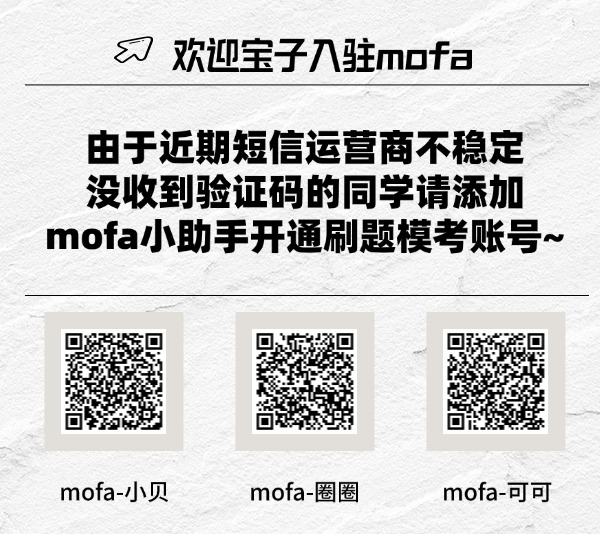Help
- 右上角的时钟图标会对每道题和所有题计时
- 右上角的文件夹点击可以打开和关闭当前题号
- 点击右上角的星星图标 ,所有被收藏的题目均可在“我的”-“收藏”中找到
- 点击右下角 Next进入下一题。注意:如果你没有做当前题目,你将不可以进入下一题
- 点击左下角的 Quit或 End Exam 即可退出练习
End Section Review
-
你想结束这部分的检查吗?
如果你点击Yes,你将结束该部分模考。
End Exam
If you click the Yes button below,your exam will end.
Are you sure you want to end your exam?
Answer Edit Confirmation
-
你想更改这个问题的答案吗?
 mofa留学圈
mofa留学圈




 做题笔记
做题笔记
 暂无做题笔记
暂无做题笔记 提交我的解析
提交我的解析


